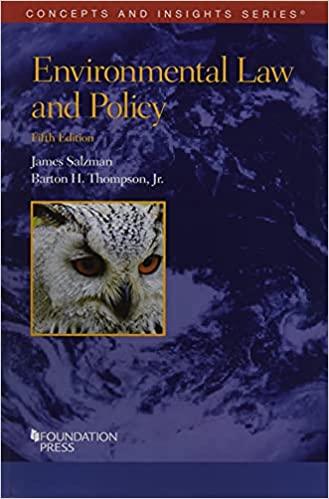Question
State whether the following statements are TRUE or FALSE ; and give REASON for your answer. You are required to support your
State whether the following statements are "TRUE" or "FALSE"; and give REASONfor your answer. You are required to support your answer by referring to the relevant statutes and/or case laws.
1.Agency contract must be made in written form.
2.An agent must have a principal whose existence and capacity can be determined after the formation of the contract.
3.Agency can arise by estoppelwhere an agent who was duly appointed had exceeded his authority or a person who has no authority to act for the principal has acted as if he had the authority, and the principal accepts and confirms such contract.
4.Agency can arise byimplied appointment of the principal where it is impossible for the agent to get the principal's instructions and the agent's action is necessary to prevent loss to the principal and the agent acts in good faith.
5.Agency can arise by ratification, that is, by operation of law where it is impossible for the agent to get the principal's instructions and the agent's action is necessary to prevent loss to the principal.
6.Agency will terminateautomaticallyby the agent's death.
7.An agent can only disobey his principal's instructions if he honestly believes that disobeying those instructions is in his principal's best interests.
8.In order for apparent authority to arise, a representation must be made by the principal prior to the contract being entered into.
9.Where a third party deals with an agent, but is not aware that he is dealing with an agent, the principal will not normally be contractually bound to the third party.
10.There is an implied warranty provided under the Sale of Goods Act 1957, namely,where there is a contract for the sale of goods by description, that the goods shall correspond with the description.
11.The Sale of Goods Act 1957 does not apply if the exact price is not mentioned in the contract.
12.The Sale of Goods Act 1957 only applies to contracts for the sale of goods where ownership is to be transferred immediately the contract is made.(false)
13.Where a contract for sale is for goods which are unascertained, title to the goods passes when the contract of sale is finalised.
14.According to the Consumer Protection Act 1999, a 'consumer' is defined as a person who acquires or uses the goods or services to resupply them in trade.
15.According to the Consumer Protection Act 1999, a consumer has no right of redress against a manufacturer of goods where the goods fail to comply with any of the implied guarantees under the Act.
Step by Step Solution
There are 3 Steps involved in it
Step: 1

Get Instant Access to Expert-Tailored Solutions
See step-by-step solutions with expert insights and AI powered tools for academic success
Step: 2

Step: 3

Ace Your Homework with AI
Get the answers you need in no time with our AI-driven, step-by-step assistance
Get Started


